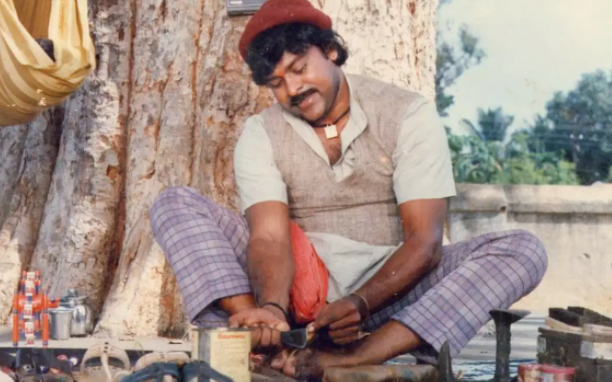Before I begin with this task of 10 questions, which many of my readers have asked, let me narrate my experience.
My first experience of religion, began at home. To begin with my father was a believer in God and practiced his faith with all sincerity. He was fairly consistent and practical in his practices except for a few years when things became very hard for him. Neither my mother nor my father never insisted on practicing rituals at home or forced me to go to temples.
I have been a minimal believer in my faith (Hinduism) all my life, and now at 62 yrs have made peace with all the issues I had. This is reflected in my posts in this blog and this post in particular.
I have seen some of my relatives being non believers and enthusiastic critics of believers when young but have become believers when things have got out of hand!
Life goes on. Meanwhile, Hindu religion activism has gained popularity. Sometimes, I feel it has become self defeating with all the extreme practices and superstition.
Now, let us list the 10 questions you were afraid to ask. And here are my answers.
How to understand Hinduism?
Hinduism can be seen as having 5 parts.
- Idols
- Decoration (alankaram)
- Literature
- Superstition
- Stories
Why important days of Gods do not clash with one another?
Important days (Saturday for Lord Venkateshwara, and so on) were declared by people associated with religion to ensure dilution of devotees due to confusion does not occur, and there are no clashes also. This happened over a period of time.
Why is excessive religion harmful?
The pattern of thinking religion promotes discourages independent thinking and empathy. This is why excessive religion (measured easily in the number of hours you spend per day) is harmful.
Why is God no longer conscience keeper in Hinduism?
Lawlessness has increased in Indian society and aggression has percolated everywhere leaving no one untouched. I find even individuals and common man have become like that. The anger and virulent activity is simmering below the friendly surface.
So, God has been conveniently disconnected from the role of conscience keeper.
Why are Hindu Gods so different from each other?
Similarity would remove uniqueness and consequently reduction of mystery. Making it common place. Religion has to be unique and special to sustain.
How do you explain the Rise of Swamiji’s?
Over the centuries new Gods were created based on the times and challenges. Now, with the rise of tuitions up to Engineering and CAs and Civil Services, Swamijis have gained traction. Individuals need interaction and spoon feeding. Swamijis address gatherings and TV interviews and devotees imagine they are making a direct connection with the swami.
What is the future of Hinduism?
Unless Hinduism eliminates superstition and excessive emphasis on rituals, and replaces it with independent thinking, cleanliness and hygiene in food and medical care, and skill based learning, it is doomed. Spirituality should come after this is embedded into religion.
What are Positives about Hinduism?
Literature which is rich and creative, and rituals when practiced in certain time of the day are the positives.
Why there are no Gods for Humor and Cleanliness?
Because if religion preaches any solution to other than insecurity, greed and vanity there will be no more Bhaktas. The mystery will be lost forever.
How to be a Hindu and still not get entangled by its Negatives?
Create your own minimum program minus the superstition, idols, alankaram. Replace with literature, minimum rituals.
Then how can I ensure, my life is on track. Considering that God and Religion is supposed to do that.
Focus on two things and life will be on track.
Embed in your life that some things are sacred. Marriage, Learning, Unbiased thinking, Not Competing with people younger than you. Do not bring money into creating this list.
Second, love and respect your parents.






